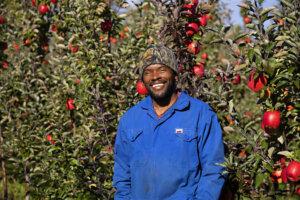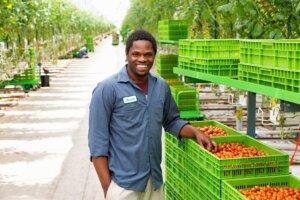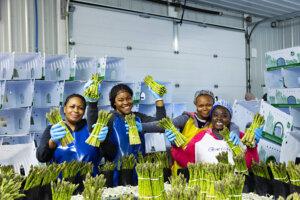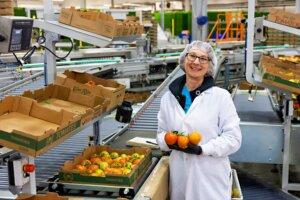Canadian Farms & Farmers
Canada’s international farm workforce
Canada’s international farm workforce
International farm workers (often called migrant workers) who come to Canada legally can work here through two government-regulated programs: the Seasonal Agricultural Worker Program (SAWP), or the agricultural stream of Canada’s Temporary Foreign Worker (TFW) program. In 2022, over 70,000 workers came to Canada through these programs to work on Canadian farms.
The SAWP began in Canada in 1966 when 264 Jamaican workers arrived in Ontario to help with apple harvest. Today, the government-approved program is open to workers from Mexico, Jamaica, Trinidad & Tobago, Barbados, and the Eastern Caribbean islands; those who come to Canada work for a defined period of time before going home for the winter.
Workers who come to Canada under the TFW program’s agricultural stream will stay year-round for up to two years, before either going home or applying to renew their work permits to stay in Canada longer. They come from many different countries, including Thailand, Vietnam, the Philippines, and Guatemala.
Regardless of which program brings them here, however, these workers have the same rights and privileges as Canadian workers do, and their employers have the same obligations and responsibilities to those workers as they do for their Canadian employees. This duty includes minimum wage; workplace insurance coverage and safety protection; and access to healthcare, Employment Insurance, and the Canada Pension Plan.
It is common for many workers to return to the same farm year after year, where their experience and skills make them valued members of the farming business. With the money they earn in Canada, workers support their families and communities back home. There are many examples of workers who’ve been able to establish farms and businesses in their home countries, create local jobs, and pay for their children’s education because of their jobs in Canada.
You can meet some of them at www.MoreThanaMigrantWorker.ca where they tell their stories in their own words.
Outside the strongly regulated SAWP and TFW programs, there is also a third segment of migrant workers who are undocumented, and thus don’t have legal work permits. Their precarious status leaves them vulnerable to mistreatment, regardless of the sector in which they work. Governments at the federal and provincial level have made it a priority to prevent the exploitation of these undocumented people, a priority which has the full support of the farming sector.






